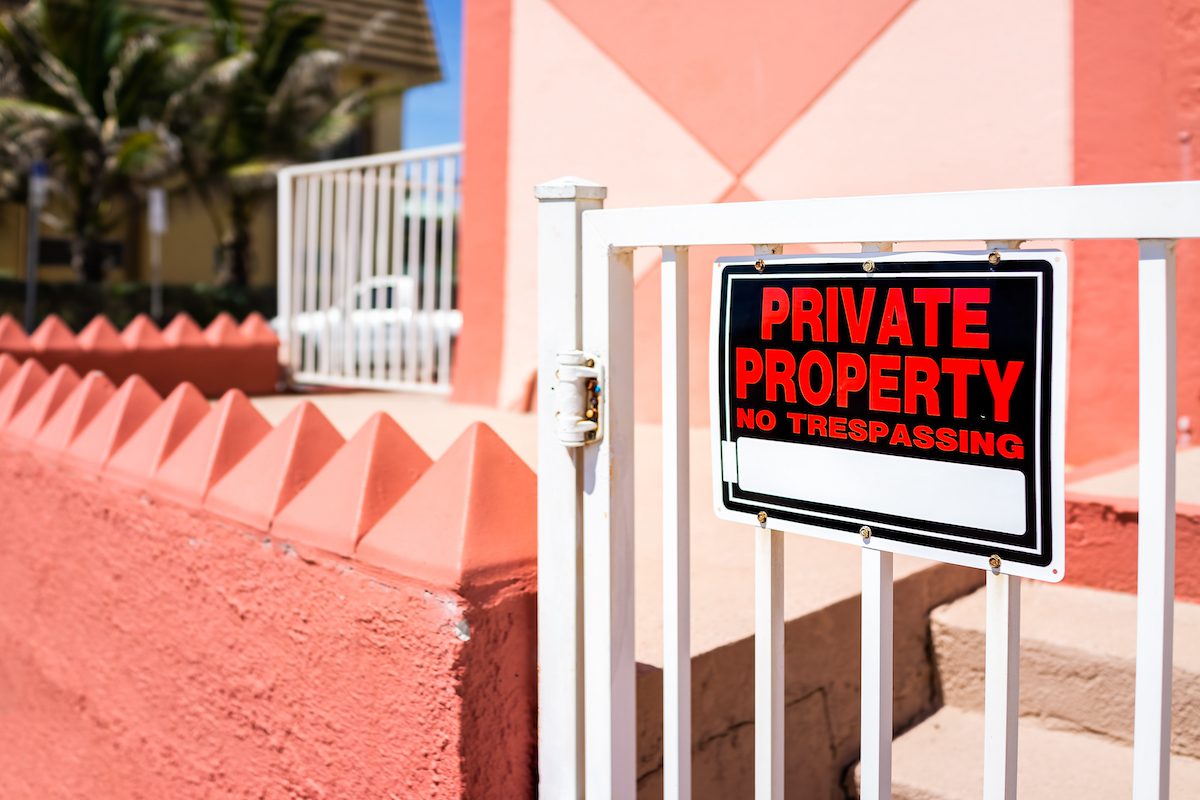What are Squatter Rights? Important Info Landlords Need to Know

A tenant signs a lease, moves into your rental home and pays rent each month. That's how you expect things to go when you own a rental. But, in rare cases, you might have a squatter settle in — so get familiar with squatter rights.
Squatters are individuals or groups who move into your home without paying rent. In some cases, they have rights, and landlords must take action to remove them from the property. Here's what you need to know about squatter rights and how to deal with unauthorized tenants.
What is a squatter?
A squatter is someone who lives in a home, building or on land that they don't own and have no legal right to occupy. Squatters live in the property without paying rent or having legal documentation showing that they own the property, a rental lease agreement or other permission to occupy the space. Holdover tenants can become squatters if they stop paying rent, their lease expires and the property owner doesn't take immediate action.
Removing a squatter isn't always as simple as asking them to leave. Unauthorized tenants, also known as adverse possessors, have the right to undergo a formal eviction process. The property owner also must proceed according to state squatter rights, or adverse possession laws.
Do squatters actually have rights?
Yes, most states have some type of squatter rights law that allows an individual to gain legal access or ownership of the property if they live in a home for a specific time period. All states are different, however, so be sure to check with what's legal in your area or talk to an attorney.
Squatter rights laws, or adverse possession laws, essentially allow someone to inhabit the property as long as the owner doesn't evict them or take other legal action to remove them. The laws usually apply to cases where someone has occupied the home illegally for a specific time, such as 10 years, and paid property taxes or utility bills for the home.
In most cases, property owners must provide an eviction notice and go through your municipality's legal eviction process to remove a squatter.
Why do squatters have rights?
Squatter rights are meant to "discourage the use of vigilante justice," according to Anderson Business Advisors. Laws ensure property owners don't take matters into their own hands, which could lead to a dangerous situation. They're also in place to outline everyone's rights in the situation to keep the real estate market and real estate negotiations safe, stable and peaceful.
Historically, squatter rights came about to protect city residents looking for affordable housing. They enabled individuals to settle into abandoned homes.

What's the difference between a squatter and a trespasser?
A trespasser breaks into a home unlawfully, usually without plans to move in. Squatters are technically trespassing, but they intend to take ownership of the house or turn the property into their permanent residence. A squatter often has utilities turned on, furniture in the home or a previous lease in their name.
Trespassers can usually be removed by the police according to local loitering or trespassing laws. Squatters might have grounds for being in the property, especially if they have documentation supporting tenants' rights, like a utility bill, or can obtain an adverse possession claim. Police can't remove people from the property if they have this documentation, and the property owner has to pursue legal action.
What states still have squatter rights?
All 50 states have some type of squatter rights or adverse possession laws. But, each state statute differs in the length of time someone has to live in the home and how they're enforced, according to the American Apartment Owners Association.
States that require individuals to live on the property for 20 or more years include:
- Delaware
- Georgia
- Hawaii
- Idaho
- Illinois
- Louisiana (30 years)
- Maine
- Maryland
- Massachusetts
- New Jersey (30 years)
- North Carolina
- North Dakota
- Ohio
- Pennsylvania
- South Dakota
- Wisconsin
The other states require unauthorized residents to live in the home for five to 19 years.
Some states require a squatter to have a deed to the property or proof that they paid property taxes.

How do you deal with illegal squatters?
To evict a squatter, you must follow your local laws so be sure you know what's allowed and required of property owners. It's often a good idea to hire an attorney to handle the eviction process since they're well-informed of how the law works. Here's how you can deal with a squatter:
Contact law enforcement
If you're not sure how long the squatter has occupied your home, it's best to call the police to report the break-in. This will help you get a sense of whether the person living there is a squatter or trespasser.
The police probably can't remove the squatter, but filing an official police report will help you in the future if you have to go through with the eviction. It will serve as documentation of your efforts to remove the person from your home. And, it's always a good idea to have the police present whenever you interact with the unauthorized tenant.
Send a formal eviction notice
After reporting an illegal tenant, you need to send a formal eviction notice asking the squatter to leave. The notice usually provides a timeframe for the individual to leave the home before you start the eviction process. This process varies by state, so it's best to talk to an attorney to help with this process.
Go through with the eviction
If the squatter doesn't leave by the deadline on the eviction notice, it's time to take it to court by filing an unlawful detainer lawsuit. Exactly how to do this varies by state, but usually, you file it at your local courthouse. They'll set a hearing and you and the squatter will need to attend to present your case. If the judge rules in your favor, a police escort will remove the squatter.
Follow the law when removing the squatter's belongings
Even if you win the case and the squatter must leave the home, you can't necessarily clean out the space and throw away their belongings. Some states require property owners to provide the squatter with written notice that includes a deadline for when they must pick up their possessions. To make things easier, draft this letter and bring it with you to court.
Protect your home from squatters
The best way to handle a squatter is never to have to deal with one in the first place. So, there are several steps you should take to protect your property, especially when it's vacant:
- Visit the home frequently
- Install an alarm system, including security cameras
- Put up "no trespassing" signs
- Set up motion-activated lights
- Hire a property manager to keep an eye on the home
- Make sure doors and windows are secure
Carefully screening tenants is the best way to make sure a renter doesn't one day become a squatter. Contact past landlords and employers to make sure they have a track record of paying rent on time and taking care of the property.
Learn squatter rights to protect yourself
Don't worry: Having a squatter move into your rental home is rare. But it's crucial to understand your local squatter rights laws to know what to do if it happens. Keeping a close eye on your property and thoroughly screening tenants will help protect your home from squatters.
